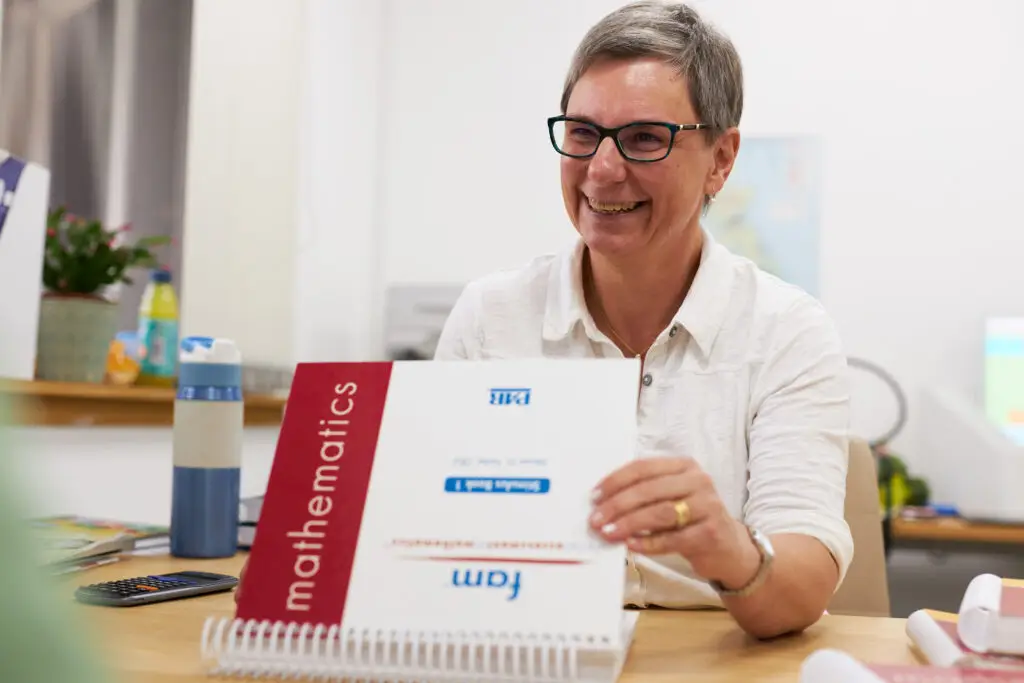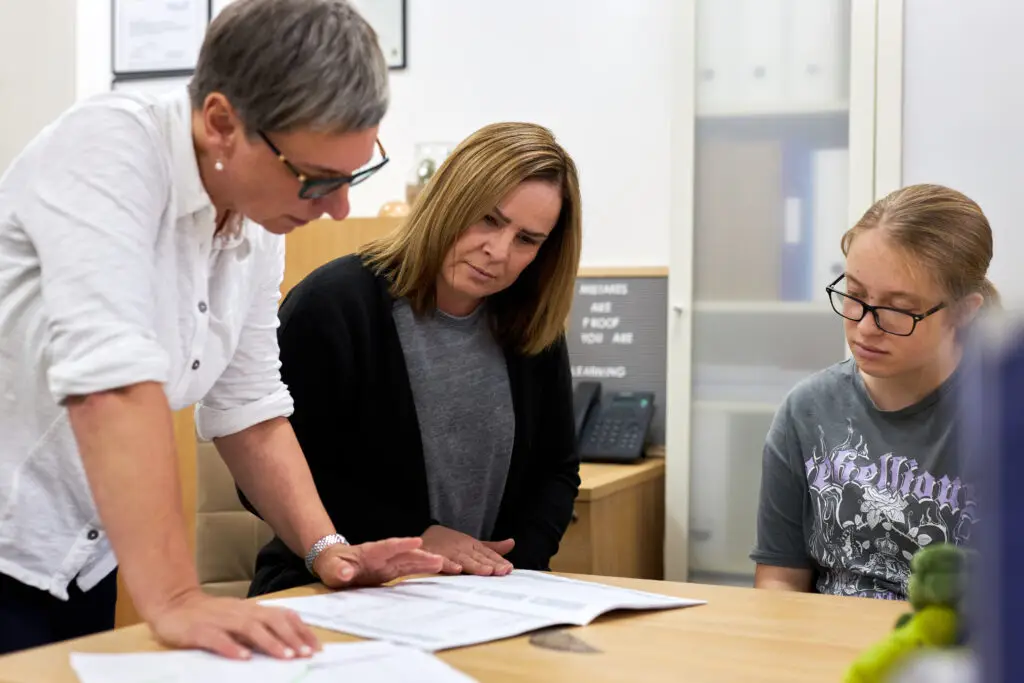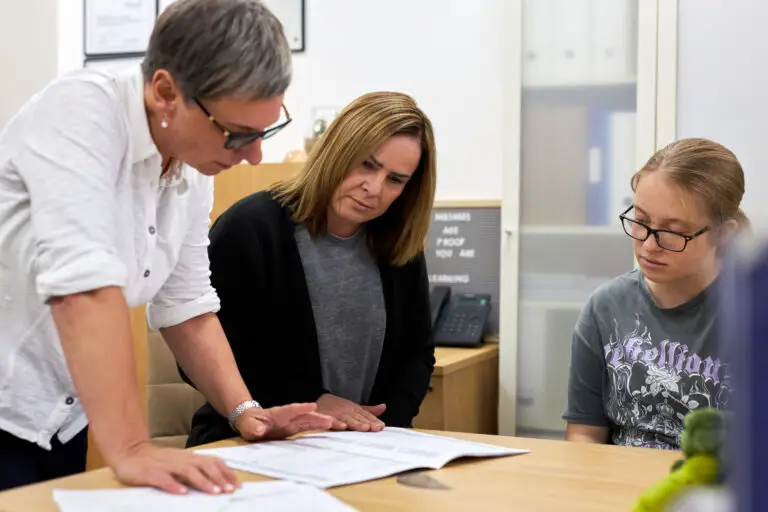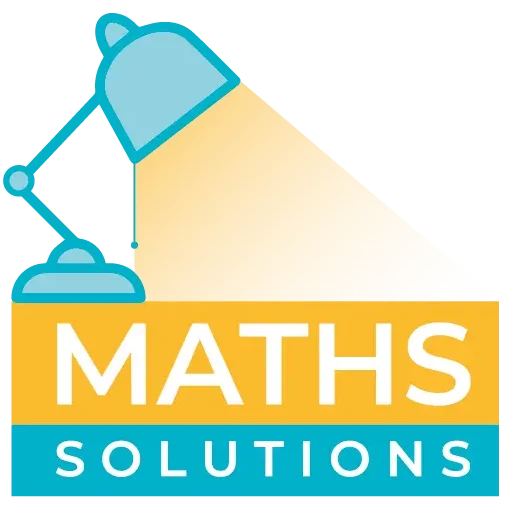about
Expertise you can trust
Maths Solutions’ team of highly experienced assessors and teachers collectively possess over 60 years of experience in supporting learners with diverse needs. Together, we can carve a pathway to success.

marijke walters, founder
Enthusiastic. Effective. Passionate. Marijke is the founder of Maths Solutions and its principal teacher and assessor.
A scientist turned educator, Marijke transitioned from a career in cancer immunology to teaching, gaining her maths and science teaching qualifications in the UK. With nearly two decades of teaching experience, Marijke has been Head of Department and Specialist Leader in Mathematics Education. Her credentials include a Masters in Mathematics Education, National Professional Qualification in School Leadership and she is a highly qualified Dyscalculia Specialist Teacher and Assessor with a Level 7 Post Graduate Diploma (PgDip).
Known for personalised instruction and positive learning experiences, Marijke excels in leadership, training, and supporting learners with diverse needs, whilst actively contributing to the international dyscalculia community.
Get to where you need to be
Dyscalculia is much more than just dyslexia with numbers. Marijke and the Maths Solutions associates have subject matter expertise that empowers professionals and allows students to flourish.

philosphy
Maths Solutions deliver methodologies that allow students and educators to navigate the challenges of dyscalculia.
Striving to emphasise the ‘why’ behind mathematical concepts while avoiding overly simplistic approaches, our primary objective is to nurture mathematical confidence.
Misunderstandings regarding dyscalculia persist among mathematics specialists and educators. What is often overlooked is the profound impact of dyscalculia on number sense and working memory. We address this issue by delivering sessions which resonate with both students and professionals.

FAQs
Many individuals struggle with mathematics, but this may not always be attributed to dyscalculia. Their maths difficulties can arise as a consequence of other neurodiversities or Specific Learning Difficulties (SpLDs), gaps in education, lack of high quality maths teaching in school or the impact of longer disruptions such as those experienced during the Covid pandemic.
The defining feature of dyscalculia is the absence of number sense, which poses significant obstacles to grasping numerical concepts foundational to mathematical understanding in our education system. However, lacking number sense does not imply a lack of intelligence; it suggests the presence of a neurological barrier hindering the understanding of numerical concepts. This difficulty extends to imagining quantities and estimating, compounded by potential issues with working memory.
Additionally, individuals with dyscalculia may encounter challenges with time perception and reading analogue clocks or deciphering timetables. Understanding the value of items or assessing whether they are being overcharged can also prove daunting, as numbers hold little meaning to them. These individuals will struggle to recall basic maths facts despite repeated attempts at learning them. Concrete and visual representations of numbers or making connections between concepts are often more effective for individuals with dyscalculia.
Further information on dyscalculia can be found on:
Assessors must dedicate many hours over many years and go to great expense in order to become a dyscalculia assessor. The assessor not only needs to buy costly psychometric test but also has invested time and resource in obtaining qualified teacher status (QTS). This qualification was acquired on top of their three to four year degree. Moreover, studying another two years at post graduate level to become a qualified Level 7 dyscalculia assessor, coupled with continued specialised training in dyscalculia research and practice post-qualification, contributes to the overall cost of the testing process.
The assessment process itself entails meticulous preparation and execution, requiring considerable dedication, effort and time. Before the assessment, the assessor analyses a detailed questionnaire, often supplemented by reviewing previous assessment reports, a task demanding 2-3 hours. Subsequently, the assessment requires approximately 5 hours to conduct in-person. Following the assessment, the assessor dedicates considerable time to scoring tests, analysing data, and composing a comprehensive report spanning 25-30 pages, a process taking around a further 15-20 hours.
Dyscalculia assessments are solely offered as a private service and you cannot be referred from your GP.
Historically, individuals would be assessed by Educational Psychologists, who evaluated general cognitive profiles alongside short, standardised maths tests. However, with the establishment of the official UK definition for dyscalculia (SASC/BDA 2019), a diagnostic framework has emerged.
Presently, two UK universities train specialised dyscalculia assessors, many of whom focus on children. However, there’s a small number of highly qualified (level 7) dyscalculia assessors with extensive experience in teaching and working with older children and adults. These assessors are often qualified secondary or Further Education/adult maths teachers who diagnose dyscalculia through a combination of maths tasks and cognitive tests. Currently, full dyscalculia diagnostic assessments are only available face-to-face, with rates typically ranging between £500-£900.
Primary and secondary schools lack the resources for comprehensive dyscalculia assessments often resorting to online screeners which yield imprecise results. Some screeners are also used by companies to promote maths intervention programs. Mislabelling online screeners as ‘tests’ misleads parents.
Screeners do not diagnose dyscalculia. While schools may involve educational psychologists for EHCP-related assessments, this always needs to be initiated by the Local Authority. External assessments by schools or local authorities may identify ‘specific learning difficulties related to maths’. This is not an official dyscalculia diagnosis but can possibly prompt additional support if available within the school.
A dyscalculia screener serves as a preliminary tool for identifying potential maths difficulties but does not offer a conclusive diagnosis of dyscalculia. These screeners, often brief and online, are designed to identify individuals who may require further evaluation. However, it is essential to recognise their limitations. Dyscalculia screeners may yield false positives or false negatives, potentially misidentifying or overlooking dyscalculia.
Comprehensive face-to-face assessments by qualified professionals are essential for accurate diagnoses and understanding the specific nature of the individual’s mathematical challenges. Unfortunately, some online screeners are mislabelled as “tests,” leading to misconceptions about receiving a dyscalculia diagnosis.
Identifying dyscalculia involves meticulous observation of an individual’s approach to maths tasks. While a screener may capture correct answers, it may not detect underlying issues, such as reliance on finger counting or tally marks.
Despite these limitations, awareness of dyscalculia can be beneficial for parents, teachers, and individuals struggling with maths. When utilising screeners, it’s crucial to choose reliable options and interpret results judiciously.
Screeners typically fall into three categories: checklists, online screening tests, and custom screenings by qualified assessors. Free checklists from reputable sources are recommended for children and adults. However, caution is advised with commercial screeners, as they may yield inaccurate conclusions and are often tailored for younger children. Custom screenings conducted by qualified assessors offer a more personalised assessment, providing insights into the possible presence of dyscalculia or other specific maths learning difficulties. This can inform decisions regarding further diagnostic assessments tailored to individual circumstances.
For those local to the South Yorkshire region, we offer in-person tuition at our teaching centre in Wath upon Dearne, Rotherham. We can also offer online instruction via Zoom and cater to learners aged 10 and above, including adults of all ages.
We acknowledge potential apprehensions around online lesson quality vs traditional face-to-face learning and assure students and parents that our online platform mirrors the excellence of our in-person lessons. Unlike typical whole-class online experiences necessitated by the Covid-19 pandemic, our approach prioritises personalised, one-to-one engagement. Our highly experienced teachers are dedicated to delivering tailored educational experiences, using various tools like online manipulatives, visualisers, and suggested physical materials to facilitate hands-on learning. We strive to create an interactive and dynamic online environment, maintaining the effectiveness of traditional instruction while harnessing technology’s benefits.
While we value the interpersonal connections fostered in physical settings, our commitment to delivering exceptional education remains steadfast across all platforms. We offer dedicated time for feedback discussions with tutors, fostering strong relationships with learners and families.
Please note that a diagnosis of dyscalculia or any other Specific Learning Difficulty does not automatically entitle individuals to extra time in examinations. While such a diagnosis can aid in directing the school’s special needs coordinator (SENCO) toward appropriate support measures, it is not mandatory. To qualify for extra time in formal examinations, students must undergo a formal assessment by a qualified exam access arrangements (EAA) assessor. Furthermore, their test scores must fall within specified limits determined by the Joint Council for Qualifications (JCQ). Additionally, extra time should reflect the student’s usual way of working, as evidenced by subject teachers demonstrating the student’s struggle to complete classwork, tests, or exams within allocated timeframes. Only with these criteria met can the SENCO apply for extra time as an Exam Access Arrangement (EAA) through JCQ, typically beginning in Year 9 or later.
However, it is important to consider that extra time may not be the most beneficial adjustment for every student. Other accommodations such as using highlighters, earplugs, rest breaks, or square paper may better suit the individual’s needs and optimise their examination performance.
Dyslexia can significantly impact an individual’s mathematical learning process, often manifesting in challenges that closely resemble those of dyscalculia. Moreover, a notable percentage of dyslexic individuals may concurrently experience dyscalculia. However, discerning whether the mathematical difficulties stem from dyslexia, dyscalculia, another maths-specific learning impediment, or mere learning gaps requires the expertise of qualified and experienced maths specialist teachers and dyscalculia assessors. Only through diagnostic assessments and screening can you accurately ascertain the root cause of the challenges.
All of our tutors possess the capability to assist learners with mild to moderate hearing impairments. However, Marijke stands out as the sole provider capable of delivering comprehensive mathematics support tailored specifically to profoundly d/Deaf learners. Growing up as the only hearing child in a Deaf family (OH-CODA, with both parents and sister being Deaf), Marijke is strongly commited to enhancing educational opportunities for d/Deaf individuals. Recognising the disparities faced by the Deaf community, where individuals often lag behind in maths, she is determined to bridge this gap. Leveraging her personal experiences and expertise, Marijke employs a total communication approach, utilising methods such as British Sign Language (BSL), Sign Supported English (SSE), or oral communication supplemented with visual aids to facilitate effective mathematics instruction.
Continuing Professional Development (CPD) sessions are typically conducted on-site, offered as twilight sessions or half or full-day workshops. While online delivery is an option, it requires each attendee to be logged in on a computer to participate actively in the presentation and engage with Marijke during the session.

